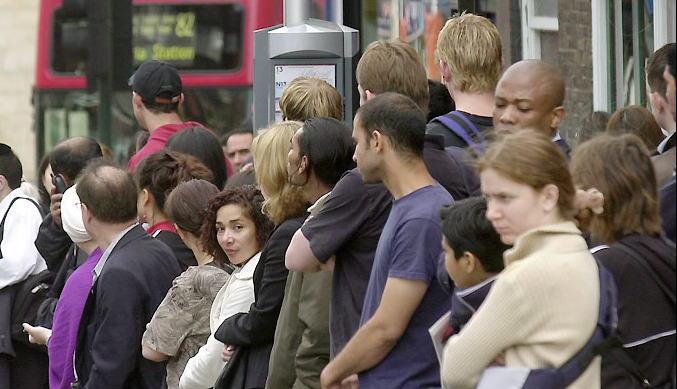Why People Give Up on Public Transit
 Courtesy of Forbes by Jeff McMahon: Commuters are more likely to stop using public transit when they experience delays they can blame on the transit agency, according to researchers at the University of California Berkeley.
Courtesy of Forbes by Jeff McMahon: Commuters are more likely to stop using public transit when they experience delays they can blame on the transit agency, according to researchers at the University of California Berkeley.
They are more likely to forgive delays caused by traffic, emergencies or mechanical failures.
“The most significant negative experiences that drove a reduction in transit use were delays perceived to be the fault of the transit agency, long waits at transfer points, and being prevented from boarding due to crowding,” wrote the researchers: graduate student Andre Carrel, undergraduate Anne Halvorsen and Professor Joan L. Walker from Berkeley’s Department of Civil and Environmental Engineering.
The researchers surveyed users of San Francisco’s Muni transit system, as well as former users. They set out to learn not only how transit users adapt to unreliability, but also how experiences on buses and trains inform people’s long-term transportation choices.
They found that passengers care about much more than just when the bus arrives—a factor traditionally considered to influence perceptions of reliability. Passengers care about the types of delays they endure and when in the trip they occur.
 For example, passengers are more likely to be angered by delays at a transfer stop than an origin stop, where they first board the bus or train.
For example, passengers are more likely to be angered by delays at a transfer stop than an origin stop, where they first board the bus or train.
At an origin stop passengers may be able to wait at home, Carrel said, if they have access to real-time arrival information, and they may be able to consider alternative ways to travel.
“If you get stuck at a transfer stop—you get off of one bus and you’re waiting for another—you’re pretty much screwed,” Carel said in a Canadian Broadcasting Company interview. “We found that was much worse.”
But it wasn’t the worst experience reported by bus riders.
“What’s even worse is when people get stuck inside the bus,” Carrel said. “When the vehicle is stuck, say backed up behind other transit vehicles, that is the most important event in people wanting to stop using transit.”
The study should give pause to transit agencies that require buses to idle at green lights or pull over to stick to a schedule or to prevent bus bunching.
The top reasons people give up on public transit, according to the researchers:
1. Delayed on board due to transit vehicles backed up or problems on the transit route downstream.
2. Experienced long wait at a transfer stop.
3. Missed departure due to wrong real-time information.
4. Unable to board or denied boarding due to crowding.
Much less significant were events that riders do not perceive to be the fault of the transit agency. “People tend to be much more forgiving when they feel the problem is beyond the control of the agency,” Carrel said. “That would be, for example, when buses are stuck in traffic, where everybody’s stuck in traffic.”
5. Delayed on board due to emergency or mechanical failure.
6. Experienced long wait at origin stop.
7. Ran to stop but the bus or train pulled away.
8. Delayed on board due to traffic.
The researchers found that comfort is the least important factor influencing decisions to stop using public transit. Riders don’t mind standing in crowded buses or trains as long as the vehicles move without delay and run frequently. Commuters are willing to wait 10.2 minutes, on average, before they consider a wait too long, the study found.
The researchers presented the study, “Passengers’ Perception of and Behavioral Adaptations to Unrealiability in Public Transportation” in November at the Transportation Research Board annual meeting. Their findings have been generating discussion recently on governing and planning agency blogs.
The researchers offer recommendations to transit agencies:
- When holding up buses for schedule reasons, hold up the empty buses, not the full ones.
- Small vehicles running more often may be better than large vehicles running less often.
- Pay particular attention to the wait times for transfers.
- When buses and trains are delayed, let passengers know what’s happening, especially if the delay is not the transit agency’s fault.
“It’s important for passengers to understand the reasons behind the problem, so communication is really key,” Carrel said.”I would say this to transit operators: If something is not their fault, don’t just let people sit at the stop or inside the bus and not tell them why they’re not getting a ride.”
Category: General Update, Management, Transit News










